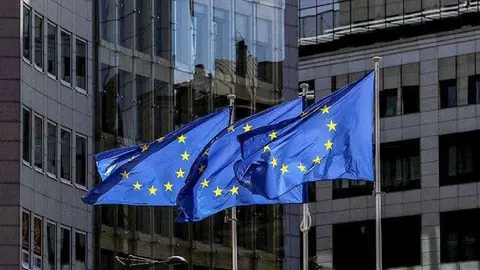From Heberto Padilla's Cuba to the Cuba found by Josep Borrell

The European Union seems to have convinced itself that there are political regimes that are not going to change, so it cannot wait forever to establish closer relations, even if this contravenes principles that seemed to have been set in stone. The recent trip by the head of European diplomacy, Josep Borrell, made this clear by refusing to make any gesture towards the opposition to the Castro regime, including demanding the release of the thousand or so political prisoners, many of them imprisoned following the protests in which voices were raised all over the island simply calling for freedom. Repression has become even more pronounced as a result of the emergence of the new struggle between the old liberal order assimilated to the West and the neo-communist populism that has been spreading like an oil slick throughout Latin America.
Strategic interests therefore rule, and it is clear that the EU, which continues to aspire to play a relevant role in the international concert, prefers to accept reality rather than to insist on defending the sacrosanct respect for human rights, which was also championed by the United States, as the leader of a certain conception of the world.
Borrell, who can boast of having raised his voice in the not so distant past against Castro's tyranny, and be praised by those who have no choice but prison or exile, has, in the eyes of that same opposition, joined the list of disappointments. The writer Zoé Valdés puts it starkly: 'When Cubans manage to free themselves from this tyranny that has existed for more than 64 years, amid repression, imprisonment, torture, executions, exile, misery and a total lack of freedoms, we must never forget the terrible role played by the European Union, with very rare exceptions, and the Spanish socialists, in the desire to lead us back to freedom in our country'.
Almost simultaneously with Borrell's visit to Cuba, the documentary film 'El Caso Padilla' was presented in Spain, bringing to light for the first time the classified archive with the fierce self-criticism of the Cuban poet Heberto Padilla. Watching this atrocious self-abasement of an intellectual whose imprisonment had provoked the first international manifesto in favour of his freedom on the screen is a mixture of nausea and disbelief. The poet, critical of a revolution that had veered towards the starkest communist totalitarianism, intones a "heartfelt self-criticism", declares himself a counter-revolutionary agent and accuses many of his colleagues in the Cuban writers' guild, including his wife, gathered for such an auto de fe, of complicity.
It was spring 1971 and he had spent a month in the hands of Cuban state security. His arrest had mobilised the intellectual avant-garde around the world, from Julio Cortázar to Jean-Paul Sartre, from Mario Vargas Llosa and Gabriel García Márquez to Jorge Edwards and Juan Fernández Figueroa.
The documentary film directed by Pavel Giroud, a true portrait of fear, may seem like a fictional tale contemplated now, on the verge of the first quarter of the 21st century. Heberto Padilla himself was able to leave the country and end his days in the United States, almost ashamed of that denouncement session in which the great poet appears to have been turned into a human wreck.
Meanwhile, Cuba and its revolution remain immovable, justifying the widespread misery of a large part of the Cuban people with the US blockade. The concessions made by those who believed that the regime would open up in exchange for improved trade relations were successively disappointed.


